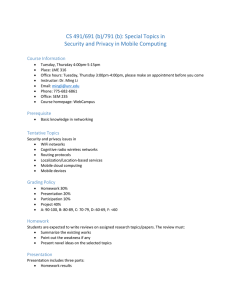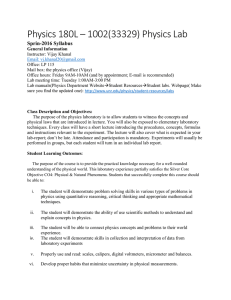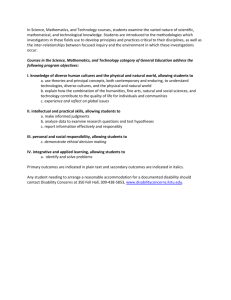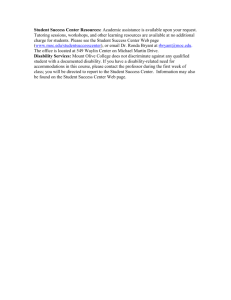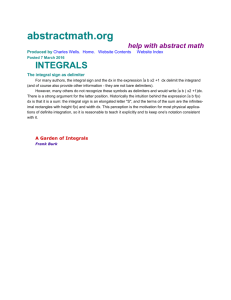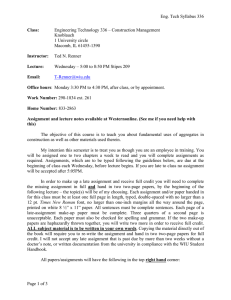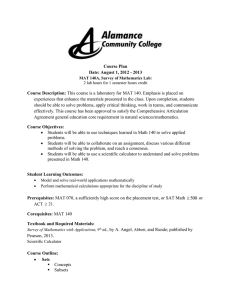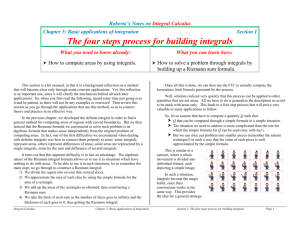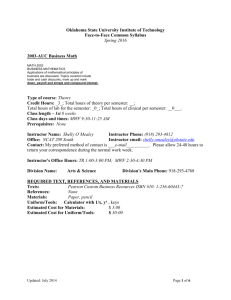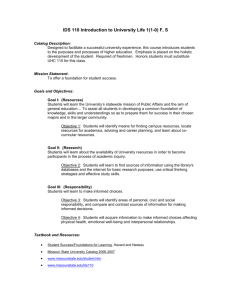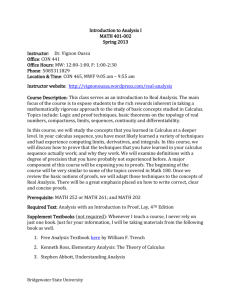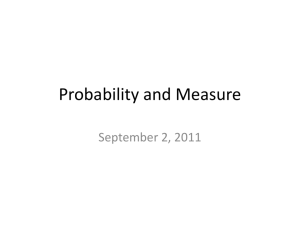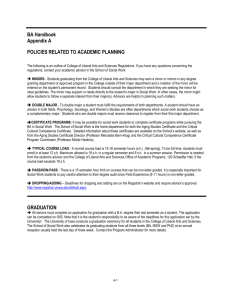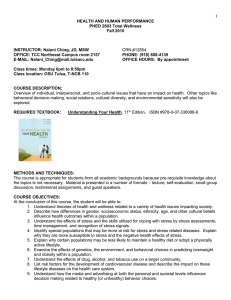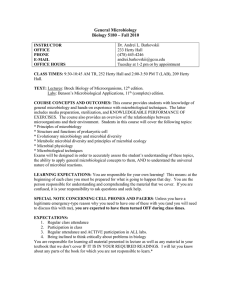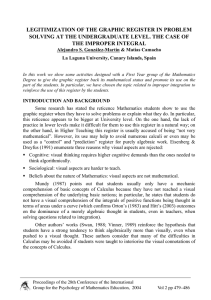Syllabus
advertisement
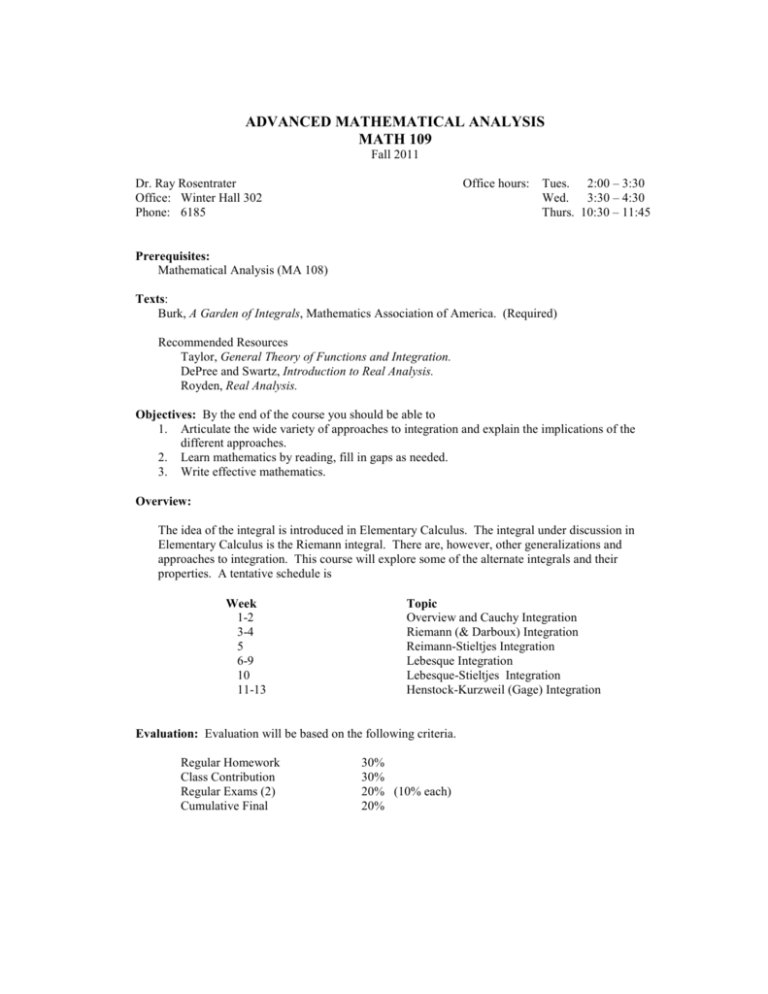
ADVANCED MATHEMATICAL ANALYSIS MATH 109 Fall 2011 Dr. Ray Rosentrater Office: Winter Hall 302 Phone: 6185 Office hours: Tues. 2:00 – 3:30 Wed. 3:30 – 4:30 Thurs. 10:30 – 11:45 Prerequisites: Mathematical Analysis (MA 108) Texts: Burk, A Garden of Integrals, Mathematics Association of America. (Required) Recommended Resources Taylor, General Theory of Functions and Integration. DePree and Swartz, Introduction to Real Analysis. Royden, Real Analysis. Objectives: By the end of the course you should be able to 1. Articulate the wide variety of approaches to integration and explain the implications of the different approaches. 2. Learn mathematics by reading, fill in gaps as needed. 3. Write effective mathematics. Overview: The idea of the integral is introduced in Elementary Calculus. The integral under discussion in Elementary Calculus is the Riemann integral. There are, however, other generalizations and approaches to integration. This course will explore some of the alternate integrals and their properties. A tentative schedule is Week 1-2 3-4 5 6-9 10 11-13 Topic Overview and Cauchy Integration Riemann (& Darboux) Integration Reimann-Stieltjes Integration Lebesque Integration Lebesque-Stieltjes Integration Henstock-Kurzweil (Gage) Integration Evaluation: Evaluation will be based on the following criteria. Regular Homework Class Contribution Regular Exams (2) Cumulative Final 30% 30% 20% (10% each) 20% Homework: Homework will be assigned more or less daily. Assignments will generally be due the following class period. Solutions are to be written up using mathematical typesetting software and should conform to disciplinary presentation standards. Class work: We will use a seminar format in this course. Each day you will be assigned reading for the next class period. You are responsible for both reading and understanding the material. In particular, you are responsible for filling in any gaps in the proofs. During class, we will review the reading and members of will be called upon to supply the missing details. Your class contribution score will be based primarily on your responses. Toward the end of the course, you may be assigned a class period during which you will lead the discussion and call on your classmates for explanations. Approximately weekly, I will distribute a copy of a submitted solution to be critiqued by the class. Absence: While attendance is expected and absence is unwise, there is no formal penalty for absence. Responsibility is expected. Clearly, you cannot get credit for class contribution when you are not present. If you are forced to miss class for some reason, make arrangements for your homework to be brought to class for you. Dishonesty: Dishonesty of any kind will result in loss of credit for the work involved. Major or repeated infractions will result in dismissal from the course with a grade of F. Collaboration is encouraged, but mere copying of another's work is dishonest. Give credit on all collaborative work. In particular, your homework solutions should credit any assistance you have received from classmates, faculty, or online resources. Students with Special Needs: Students who have been diagnosed with a disability (learning, physical or psychological) are strongly encouraged to contact the Disability Services office as early as possible to discuss appropriate accommodations for this course. Formal accommodations will only be granted for students whose disabilities have been verified by the Disability Services office. These accommodations may be necessary to ensure your full participation and the successful completion of this course. Please contact Sheri Noble, Interim Coordinator of Disability Services (x6186, snoble@westmont.edu) as soon as possible.
